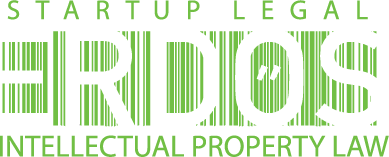Patent Strategy for Members of Coworking Spaces
File a provisional patent application before using coworking space
Distance makes the heart grow fonder is not true in all cases--you are more likely to collaborate with people who work close to you. In the relatively recent resurgence of coworking and makerspaces, a diverse range of people work closely beside each other. Initially people work in parallel on their own projects, but the spaces are designed to make it likely that relationships will evolve to towards collaboration. Often there are no walls in these spaces, or if there are walls, they are glass. Such openness allows for the exchange of skills and know-how and accelerates commercialization. Ideally, in one space, all people necessary are available to help bring an idea to market. Artisans, engineers, developers, marketers, and financiers are under one roof; they enjoy the benefits of a complete ecosystem for commercializing innovation. History shows us that such spaces produce revolutionary innovations. During the Renaissance Period in Europe makers and merchants worked alongside philosophers and scientists on joint endeavors that changed the course of history.
Coworking spaces should be championed for the productive and prolific communities that they promote; however, inventors should be aware of the implications such spaces have on patenting. One implication is that working in such open spaces and sharing ideas regarding inventions can trigger a 12 month window after which patenting that invention is barred (the "12 month bar rule"). If you wait longer than 12 months to file a patent application after publicly disclosing your invention, patenting that invention is barred.* A public disclosure is any non-confidential communication made to at least one member of the public.
Working in such open spaces and sharing ideas regarding inventions can trigger a 12 month window after which patenting that invention is barred
Why such a rule? Aren't patents supposed to be promoting the arts and sciences? Well, yes, but patent protection isn't really a reward that the Federal Government grants to inventors because they're so darn smart. Rather, patent protection is a way the Federal Government incentivizes inventors to give up the secrets to their inventions, so that after patent protection runs out (14-20 years after filing a patent application) the invention and its know-how can be created and improved upon by the public. The idea behind the 12-month bar rule is that since you already gave up the secrets of your invention to the public, the Federal Government does not have a reason to coax you into giving up your secret. (The grant of a patent is essentially the Federal Government giving you permission to have a temporary monopoly.) After all, the Federal Government (arguably) disfavors monopolies.
There are solutions for this dilemma. One solution is filing a provisional patent application** before making use of an open and shared space. A provisional application is a way of giving the United States Patent and Trademark Office a somewhat general advanced notice about what you plan to invent. As soon as you file a provisional patent application, your invention is considered "Patent Pending" and a subsequent public disclosure should have no impact on patenting; you should make use of such spaces to further develop and implement your idea so that you are first to market.
What inventors need in these spaces is at least one sound-proof, opaque-walled room for when invention development and discussion needs to be done in confidence.
Other solutions could be implemented by the managers of the shared spaces. What inventors need in these shared spaces is at least one sound-proof, opaque-walled room for when invention development and discussion needs to be done in confidence. There could even be a requirement that members of the space must sign a non-disclosure agreement regarding any inventions that are presented in confidence in such a space. There are many solutions coworking spaces can provide to preserve the opportunity for patent protection for its members.
Patent attorneys should pipe in more about their perspectives to their local incubation labs and coworking spaces to educate the public on patenting strategy. I am an enthusiastic supporter, member, and Tuesday tenant of the local coworking space,Flywheel. I am a supporting sponsor of the initiative to create a local makerspace, MIXXER. The renaissance of Winston-Salem is well underway thanks to these spaces and the community programming they support.
*If you are reading this article and thinking "Oh !@#$" because you've disclosed your invention to the public more than a year ago, do not lose hope. A skilled patent attorney may be able to strategically draft your patent application to get around the 12-month bar rule.
**Because provisional patent applications are somewhat general descriptions of the invention, they are much cheaper to draft for filing than full patent applications. However, within one year of filing a provisional patent application, one does have to file the enabling details of the invention with the United States Patent & Trademark Office.
If you have any questions about these matters, please email me atoffice@erdosiplaw.com.
